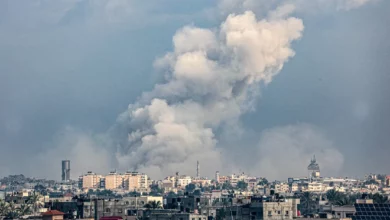The Israeli occupation of the West bank and siege of Gaza are seriously harming Palestinian olive oil production which contributes up to US$100 million annually for some of the most underprivileged Palestinian families, the international NGO Oxfam said in a report on Friday.
The report, entitled, "The Road to Olive Farming: Challenges to developing the economy of olive oil in the West Bank," blames Israel for restricting access to land and olive tree farms.
"Around 40 percent of the West Bank is effectively off-limits to Palestinians, with access highly restricted, due to settlements, outposts, bypass roads, military bases, closed military areas and areas Israel has declared as being nature reserves," the report said.
For centuries Palestinian olives have been a major commercial crop and are credited with being some of the best in the world.
Olives and olive oil are one of the main sources of income for the Palestinian economy. They represent around half of agricultural land use in the West Bank and the Gaza Strip as well as being a major export, and provide employment and a large source of income for around 100,000 farming families.
According to the report there are approximately 10 million olive trees with the potential to produce up to 34,000 metric tons of olive oil in a good year, but only 5,000 tons in a bad year. The average quantity of oil produced annually between 2001 and 2009 was around 17,000 tons.
Harmful impacts of Israeli policy also include settler violence sanctioned by the government, incidents in which illegal Israeli settlers have uprooted or burned tens of thousands of olive trees during their attacks against Palestinian farmers.
According to the United Nations, in the first six months of 2010 thousands of olive trees and other crops have been damaged by settlers.
Oxfam accused Israel of intentionally restricting access for Palestinian farmers to local and international markets, especially since the beginning of the second intifadha.
"Physical barriers such as checkpoints and road blocks have restricted the free movement of people and goods within the West Bank and obstructed access for Palestinian agricultural produce, including olives and olive oil, to internal, Israeli and international markets," the report concluded.
As for Gaza, the picture is even gloomier since inhabitants cannot even get olives from the West Bank olives since the blockade started.
The report quoted Anwar Atallah, of the Unipal General Trading Company as saying "Before 2006 we used to bring in 20 tons of containers every month, then we were allowed only 5 tons a month…..so the situation has really hit every household. Five kg of olives used to cost US$2.50 but now the price is US$2 for 330kg."




